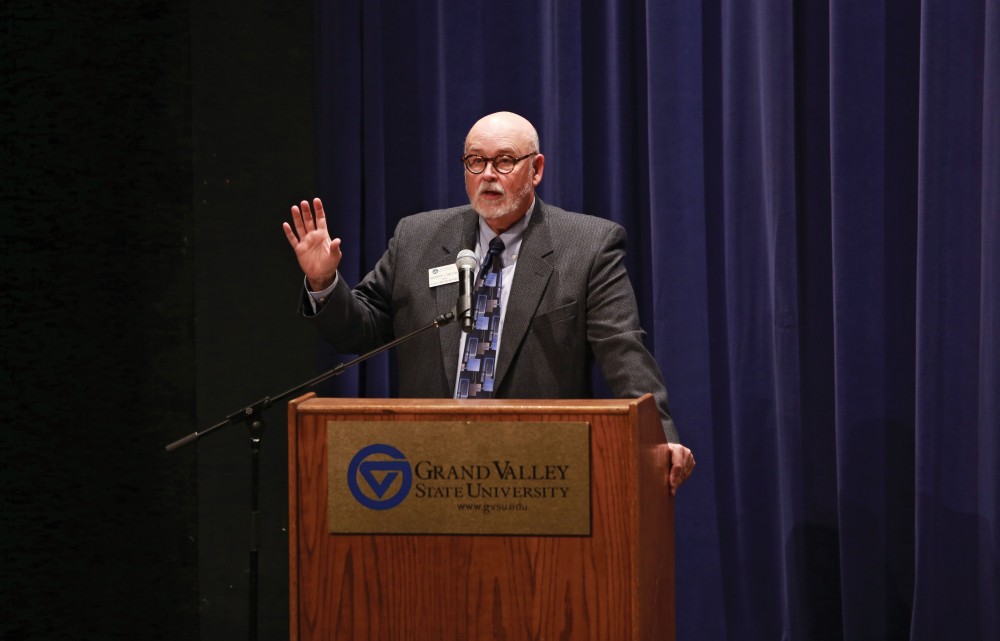Humanities courses stable despite economic trend

GVL / Kevin Sielaff Dean of the college of liberal arts and sciences, Frederick J. Antczak, welcomes the audience to the concert. The GVSU music department presents a faculty concert as a part of Fall Art Celebration Sept. 21 in the Louis Armstrong Theatre.
Jan 11, 2016
Grand Valley State University is an institution that prides itself on providing a well-rounded education complete with classes of all caliber. But is that conducive to a better education?
Harvard professor Louis Menand said during a recent Hauenstein Center event that humanities courses are being put at threat in today’s education curriculum due to an increase in demand for workers with specific skill sets.
The humanities field is described as the study of human culture and can take the form of courses in art, history, writing and philosophy, among others.
In his speech on Dec. 10, Menand said that politicians are actively pushing for an increase in vocational and pre-professional degree programs such as business, medicine, law and STEM fields. This new attitude toward humanities courses is also caused in part by economic, demographic and technological changes in society, Menand said.
Today, students at GVSU have the option to enroll in hundreds of different humanities courses. Frederick Antczak, dean of the College of Liberal Arts and Sciences, said the threat Menand speaks of is not present at GVSU.
“The threat is not particularly great at GVSU because we are dedicated to liberal education,” Antczak said. “In the larger society, perhaps. There is the (inaccurate) sense that humanities majors don’t get jobs when they graduate at the same rate other majors allegedly do. The problem with that false premise is that markets for specific skill sets come and go.”
Antczak brought up secondary education as an example that markets for specific skills sets are not always permanent.
“When the current senior class matriculated, they were told that there were no jobs,” he said. “Some majored in things they liked less, but those who chose what they loved now find themselves entering a market where the state is desperately trying to un-retire teachers to fill all the openings.”
Patricia Clark, a writing professor, agreed with Antczak that humanities courses at GVSU in particular are not at a threat. However, Clark said she is still seeing an overall trend in which curriculums are beginning to move away from them.
“I agree that humanities are under threat to some degree,” she said. “People fail to see the skill sets involved with the humanities, thus they underrate them. Reading skills and analytical skills both come out of the humanities, and they are invaluable.”
Though Menand believes humanities courses are at risk, he also reinforced the idea that they are still a valuable asset in today’s workplace.
Like other courses, Antczak said humanities courses are beneficial to students beyond just getting them a job and should be included in every GVSU student’s curriculum.
“Higher education also exists to help people become responsible citizens, effective parents, ethical leaders, and just plain human beings, living the only life they have as richly as they can,” he said. “Hence the firm, stable, constant need for humanities, which will always outlast the ever-spinning kaleidoscope of appearances we think we foresee in job markets.”





















